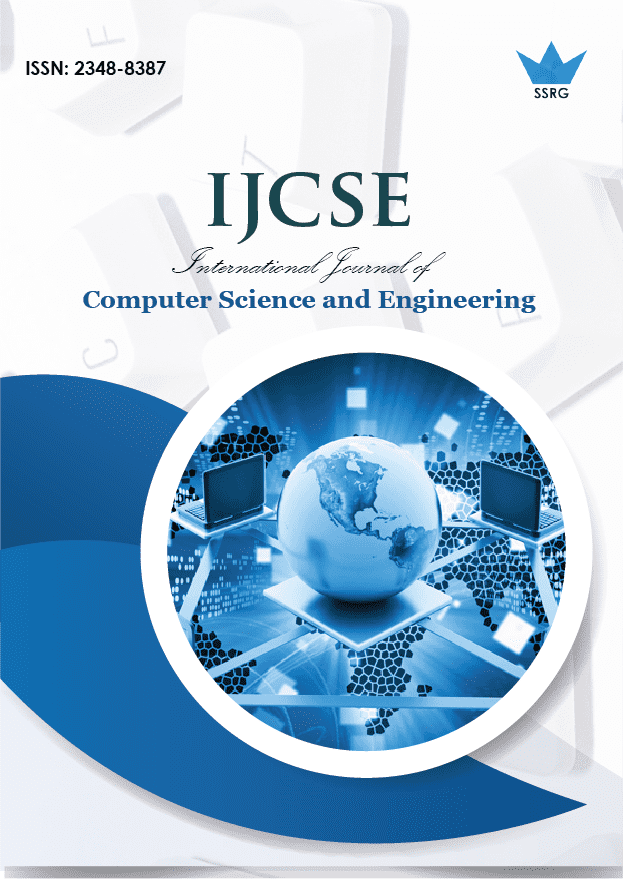Knowledge Management in Software Enterprise

| International Journal of Computer Science and Engineering |
| © 2018 by SSRG - IJCSE Journal |
| Volume 5 Issue 3 |
| Year of Publication : 2018 |
| Authors : S.Mala, Dr. K. Alagarsamy, A.Saranya |
How to Cite?
S.Mala, Dr. K. Alagarsamy, A.Saranya, "Knowledge Management in Software Enterprise," SSRG International Journal of Computer Science and Engineering , vol. 5, no. 3, pp. 8-17, 2018. Crossref, https://doi.org/10.14445/23488387/IJCSE-V5I3P103
Abstract:
Effective knowledge management of the testing process is the key to develop the quality of software testing. Knowledge management has dissimilar features in software testing. One of the maximumsignificant research questions is how to efficiently integrate the knowledge management with the software testing procedure so that the knowledge effects can be extent and reclaimed in software testing organizations. In this paper, the current state of knowledge management in software testing was evaluated; knowledge management a process was proposed towardsa knowledge management system in software testing was intended and executed. Simultaneously numerous key technologies are reflected, such as knowledge map, validity threats, software testing, Test management and Metaphysical.
Keywords:
Knowledge management, Software testing, Metaphysical, knowledge map.
References:
[1] I. Rus and M. Lindvall, “Knowledge management in software engineering,”IEEE software, vol. 19, no. 3, pp. 26–35, 2002.
[2] S. Vasanthapriyan, J. Tian, and J. Xiang, “A survey on knowledgemanagement in software engineering,” in Software Quality, Reliabilityand Security-Companion (QRS-C), 2015 IEEE International Conferenceon. IEEE, 2015, pp. 237–244.
[3] N.Suresh, “An overview of object oriented software testability” volume 1 Issue 1–Feb 2014.
[4] T. R. Gruber, “Toward principles for the design of ontologies used forknowledge sharing?” nternational journal of human-computer studies,vol. 43, no. 5-6, pp. 907–928, 1995.
[5] S.Kokila1 , T. Princess Raichel, “Software as a Service, a Detailed Study on Challenges and Security Threats” volume 2 issue 12 December 2015
[6] S. S. E. Committee et al., “IEEE standard for software and systemtest documentation,” Fredericksburg, VA, USA: IEEE Computer Society, 2008.
[7] D. Graham, E. Van Veenendaal, and I. Evans, Foundations of softwaretesting: ISTQB certification. Cengage Learning EMEA, 2008.
[8] O. K. Wei and T. M. Ying, “Knowledge management approach in mobilesoftware system testing,” in Industrial Engineering and EngineeringManagement, 2007 IEEE International Conference on. IEEE, 2007,pp. 2120–2123.
[9] X. Li and W. Zhang, “Metaphysical-based testing platform for reusing,” inInternet Computing for Science and Engineering (ICICSE), 2012 SixthInternational Conference on. IEEE, 2012, pp. 86–89.
[10] I. Douglas, “Testing object management (TOM): A prototype for usabilityknowledge management in global software,” in InternationalConference on Usability and Internationalization. Springer, 2007, pp.297–305.
[11] V. Santos, A. Goldman, and C. R. De Souza, “Fostering effective intertermknowledge sharing in Agile software development,” EmpiricalSoftware Engineering, vol. 20, no. 4, pp. 1006–1051, 2015.
[12] I. Horrocks, “Ontologies and the semantic web,” Communications of theACM, vol. 51, no. 12, pp. 58–67, 2008.
[13] Arik Johnson. An introduction to knowledgemanagement as a framework for competitive intelligence.[White Paper]. International Knowledge ManagementExecutive Summit, California,1998
[14] Gerhard Fischer, Jonathan Ostwald.Knowledge Management: Problems, Promises, Realities, andChallenges. IEEE Intelligent Systems, January/ February,2001,pp. 60-72
[15] IoanaRus, Mikael Lindvall, and SachinSuman Sinha, Knowledge Management in SoftwareEngineering A State-of-the-Art-Report[M], The University ofMaryland, 2001.
[16] He Zhitao. Research and Implementation ofKnowledge Management System Oriented Software TestingProcess(D). Beijing�Beijing University of Aeronautics andAstronautics, 2003.
[17] R. Brent Gallupe, “Knowledge ManagementSystems: Surveying the Landscape”[M], Queen’s University atKingston, October 2000.
[18] George Lawton. Knowledge Management:Ready for Prime Time?[J] IEEE Computer,vol 34, 2001, pp.12-14
[19] loanaRus, Mikael Lindvall. KnowledgeManagement in Software Engineering. IEEE Software,May/June 2002, pp. 26-38
[20] Nakkiran N Sunassee, David A Sewry. Atheoretical framework for knowledge managementimplementation. In: Proc of the SAICSIT 2002 ACM International Conference Proceeding Series, 2002, pp. 235-245
[21] Seija Komi-Sirvio, AnnukkaMantyniemi,VeikkoSeppanen. Toward a Practical Solution for CapturingKnowledge for Software Projects. IEEE Software, May/June,2002, pp. 60-62

 10.14445/23488387/IJCSE-V5I3P103
10.14445/23488387/IJCSE-V5I3P103